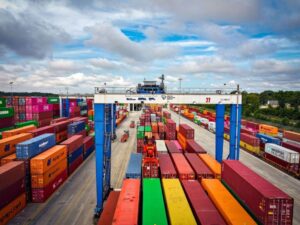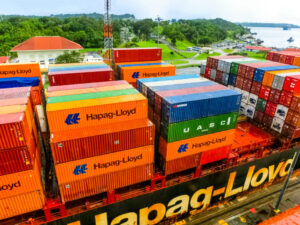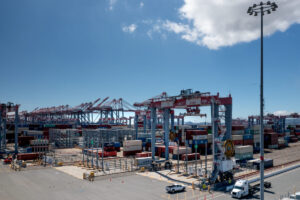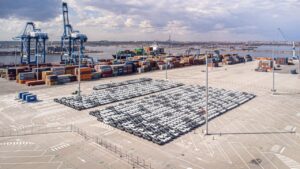Wilson Sons, a Brazilian shipping company, has announced its plans to implement renewable energy facilities at Brazil’s Rio Grande Container Terminal.
A new step has been taken in this direction at the company’s Rio Grande Container Terminal in the state of Rio Grande do Sul.
The IREC (International Renewable Energy Certificates) certification was reportedly obtained for the years 2024/25/26.
It may be used to record indirect energy consumption emissions in the greenhouse gas (GHG) Protocol Program, a major worldwide approach for quantifying GHG emissions.
Furthermore, the certificate verifies the traceability of the renewable energy source feeding the port and eliminates carbon emissions from energy use during the specified years.
By next year, the energy feeding the Rio Grande Container Terminal is expected to come from renewable sources, such as wind, solar, or hydroelectric power plants, due to this new energy infrastructure.
A solar photovoltaic power plant has been recently built at the terminal’s main parking area.
READ: DP World installs photovoltaic panels at London Gateway
According to Wilson Sons, it is equipped with 74 photovoltaic modules of 545 wind-power (Wp) and charging stations for electric vehicles.
Wilson Sons’ Sustainability Director Monica Jaén described the company’s Environmental Agenda for 2023, with energy efficiency as a top commitment.
Jaén said: “This issue is directly linked to our business strategy and to the nature of our operations. Energy efficiency is highly strategic for us.
“We want to make the best use of all energy sources in our operations, and grow in the scenario of a low-carbon economy.”
Jaén also pointed out that Wilson Sons voluntarily reports to S&P Global in New York and has been a signatory to the Global Compact since 2009.
Rio Grande Container Terminal President, Paulo Bertinetti, said: “It is extremely gratifying to be responsible for making Rio Grande Container Terminal completely clean in terms of energy”.
Weber Martins, Maintenance Manger at the Rio Grande Container Terminal, stated: “In line with our ESG strategies, the asset management department is implementing this sustainable initiative, which is generating electricity using state-of-the-art photovoltaic panels.”
According to Wilson Sons, the Rio Grande Terminal serves over 3,000 importers and exporters, with its facility receiving the main shipping lines calling Brazil, offering weekly services to all trades in the world from 11 shipowners.
In terms of flow, it reportedly handles 74 per cent of exports and 26 per cent of imports.
In May of this year, Wilson Sons posted a net revenue of R$570 million ($115.6 million) in the first quarter of 2023.
One month later, Wilson Sons purchased 12 electric terminal tractors, two reach stackers, and a side loader for use at Brazil’s Salvador Container Terminal in Bahia.









